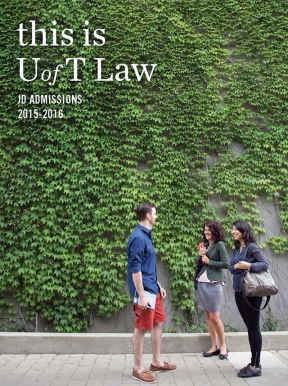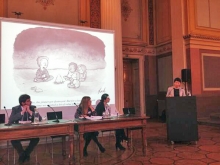This article appeared as an Op-Ed piece in the Toronto Star, Feb 4, 2007
As is so often the case, the Canadian public is far ahead of Canada’s politicians (especially those who “lead” by following public opinion polls). Most Canadians, it seems, want Canada to meet its commitments under the Kyoto Protocol. Well, they have it right. They have it right from the standpoint of combating climate change. They have it right from the standpoint of international law. And they have it right from the standpoint of Canada’s standing in the world.


 Get the inside scoop on applying to our JD program directly from the Faculty of Law Admissions Office and hear from current law students.
Get the inside scoop on applying to our JD program directly from the Faculty of Law Admissions Office and hear from current law students. 